Article by Mary Scott Hardaway
(Originally published in the 016 edition of Southern Grit Magazine as part of the “Virginia Barbecue Today” section of the magazine)
“If everything that everyone wants to call ‘barbecue’ is barbecue, then face it, nothing is really barbecue.”
Barbecue historian, lecturer and author Joe Haynes often sounds more like a philosopher than pitmaster. He’s not particularly interested in lofty hypotheticals, though. For Haynes, the fact of the matter is: the only reason we have barbecue brawls and pit wars and Hatfield-McCoy style feuds today is because, more than 400 years ago, American barbecue started in the state of Virginia.
American barbecue begins with the creolization of three groups: Native Americans, enslaved Africans and poor, indentured Europeans.
Whole hogs (European) were cooked in pits (modeled after European military trenches and Powhatan methods) over coals and wood by enslaved Africans using Native American cooking techniques. These early enslaved pitmasters were also influenced by African cooking techniques, and used European seasoning (vinegar) to make the pork pull tender.
Haynes and other like-minded barbecue aficionados urge—this is not a record up for debate. “If there is documentation that anyone has of American barbecue as we know it today predating Virginia, please show it to me,” says food writer and Setting the Table podcast host Debra Freeman. “I’m more than willing to have that discussion.”
Freeman—a native Virginian and grand master of the historical-foodways-deep-dive—is devoted to uncovering and sharing the truth about barbecue’s origins. “For me, Virginia barbecue comes down to wood and a whole hog and how it is cooked over coals. What was created hundreds of years ago still endures today, and it’s taken a bunch of different forms,” says Freeman. “That’s wonderful—the origin point just happens to be Virginia.”
——————————————————————————————————–
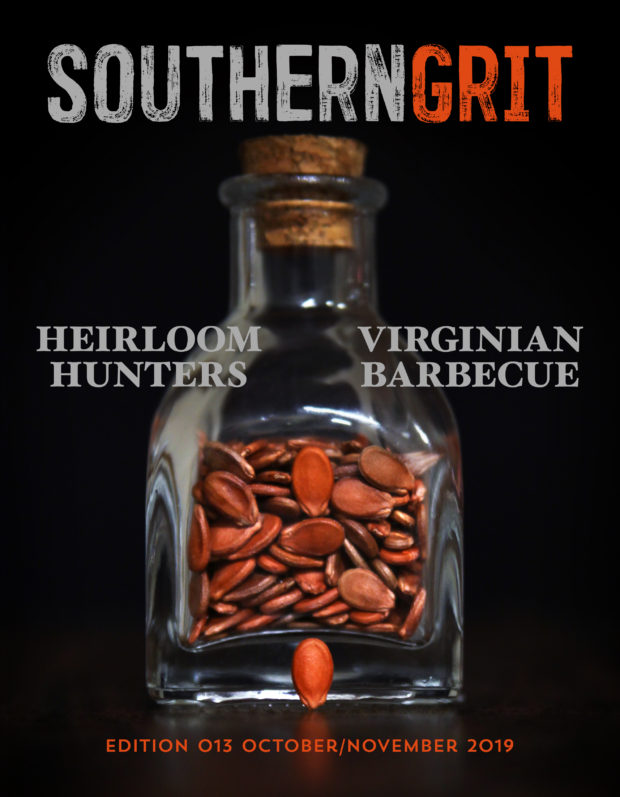
Select back issues of Southern Grit Magazine are available for purchase in limited numbers at the following link southerngritmagazine.bigcartel.com
——————————————————————————————————–
The records detailing barbecue’s origins are boundless, and Haynes is a dogged gumshoe—he’s even received credit from the Oxford English Dictionary for finding the first recorded instance of the word barbecue that we know of in English literature.
“I’ve written two books on the subject and haven’t scratched the surface,” he says. “People say, ‘oh there’s no barbecue in Virginia,’ when in fact Virginia has the richest barbecue history in the country.”
That history includes both the methodical, laborious practice of cooking whole hogs in open-air pits and the tradition of using barbecue as an impetus for community gatherings. “In 1619 when the House of Burgesses met for the first time, elected officials had to figure out how to reach their constituency,” explains Haynes. “How do you reach a bunch of young men living out alone on these big plantations?
”Answer: keep the booze flowing and feed them the cheapest way possible—with a pig caught in the woods and cooked by enslaved men. These first gatherings were called “entertainments” and, as time went on, became “barbecues” as we understand the event today.
“Virginia didn’t have these big towns and cities—no one was meeting at the tavern or holding a caucus like in New England,” says Haynes. “They had to entice people with free food and drink, and they’d come for miles around. That is how barbecuing was born in the south. That mode of politicking and social gathering spread as Virginia moved south and west.”
So, if Haynes has already done the good, hard work of dissecting dense, historical documents and writing books like Virginia Barbecue: A History (available at a bookstore near you), why aren’t more folks talking about Virginia’s role in barbecue?
“One reason why it’s not easy to talk about the formation of barbecue is because you’ve got really difficult issues at play,” says longtime Virginia foodways magazine publisher Joshua Fitzwater. “There’s slavery and what happened to the Native Americans. The really complicated story of America and barbecue has the highest of highs and lowest of lows in the same breath.”
Armchair experts and veteran pitmasters alike can—and have—gotten their hackles up about the nascence of this quintessential American cuisine. North Carolinians have proclaimed themselves the masterminds behind whole hog cooking and vinegar-based sauce, and no Virginia pitmasters or food writers have corrected them. At least, not loudly or often enough.
The reality of the vinegar debate, Haynes says, is that there are cookbooks from the 1500-1700s explaining how to roast beef, pork, lamb or veal, basting with a sauce made of “butter, vinegar salt and spices.” “That’s the original southern barbecue sauce, and the one used first in Virginia by Europeans,” says Haynes.
Texas barbecue is its own world, much like the state itself is an entity quite separate from the South. Texas Monthly has a barbecue editor on staff, for heaven’s sake. But the history of barbecue in the Lone Star state also dates to the Old Dominion. “You can find ads from the 1800s and 1900s about ‘authentic Virginia barbecues’ being held in Texas,” says Fitzwater.
Unfortunately, that kind of media campaign doesn’t exist in today’s world for Virginia barbecue.
“If you think about Texas barbecue, you automatically think about brisket and that specific taste,” says Freeman. “We really don’t have that kind of imaging in Virginia.
”If you were to ask a Virginian, “Where can I find the best Virginia barbecue?” they may direct you to ZZQ in Richmond or Pierce’s Pit in Williamsburg. These are both fine establishments serving tasty ‘cue that happen to be located within state lines. But that doesn’t mean they’re serving Virginia barbecue.
Why is there so much confusion about what defines our state’s barbecue? Why is Virginia the forgotten piece?
Not only is the story a difficult one to unpack—many Virginian pitmasters don’t understand the history themselves. “Change has to come from within,” says Fitzwater.
“I think there are some pitmasters trying so hard to replicate other styles of barbecue which is unfortunate when you’re overlooking what is in your own backyard,” says Freeman.
But all hope is not lost. There’s 1752 Barbecue in Woodstock, The Original Ronnie’s BBQ in Varina and The Barbeque Exchange in Gordonsville. “Those three have managed to make amazing Virginia barbecue today but also keep it fresh and new,” says Fitzwater.
Fitzwater also notes that there are varieties of Virginia barbecue that don’t involve a hog, but certainly involve love and labor—and deserve a spotlight. “One of the unsung heroes of the area is the Shenandoah Valley barbecue chicken culture. If more people outside of that would start to make that, I think it would really catch on,” says Fitzwater.
Folks may holler, “So what? It’s just semantics!” as they sop up their meat and two platters with hunks of corn bread. There are barbecue chips at every gas station and Carolina mustard bottles at Trader Joe’s (it’s not half-bad) and if you close your eyes and spin half a degree in any minor city, you’ll land at a restaurant with something “barbecued” on the menu.
But shouldn’t we at least try to understand the true, historically accurate—and fascinating—origins of barbecue? As Americans who love meat more than air and who value resilience, ingenuity and pure heart above all else, shouldn’t we attempt to understand this quintessential American cuisine, a cuisine created in spite of dire, malevolent circumstances?
“If I were a prophet, I would say the original old way of cooking barbecue is going to re-emerge,” says Haynes. “The idea that everywhere you go all barbecue tastes the same—that’s a shame. That’s internet-style barbecue. If you’ve never eaten pork cooked that way, over oak and dabbed with a vinegar butter baste, well then you’ve never really tasted delicious barbecue.”

Mary Scott Hardaway Fletcher is a writer and editor based in Richmond, Virginia where she lives with her husband, young son, cat, and rowdy hound dog. She grew up in the small town of Gloucester, Virginia and loves to deep dive into Old Dominion foodways whenever she is able. She swears by extra dirty martinis, Chesapeake oysters on the half-shell and vinegar-based barbecue. For more on Mary Scott Hardaway Fletcher, visit @maryscottwrites

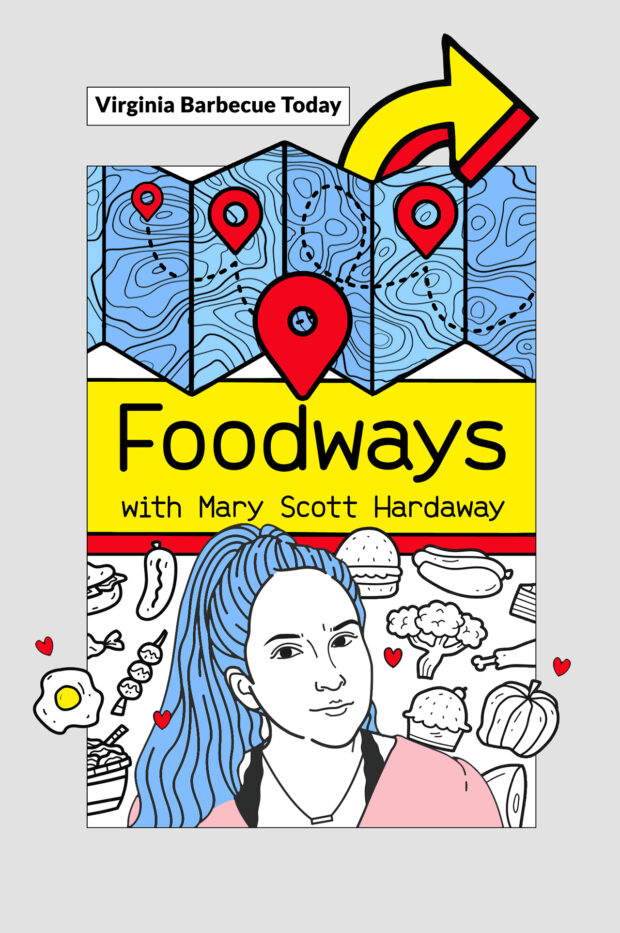

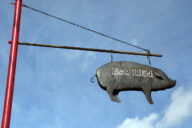
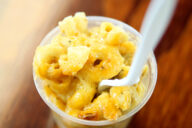
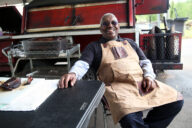

No Comments